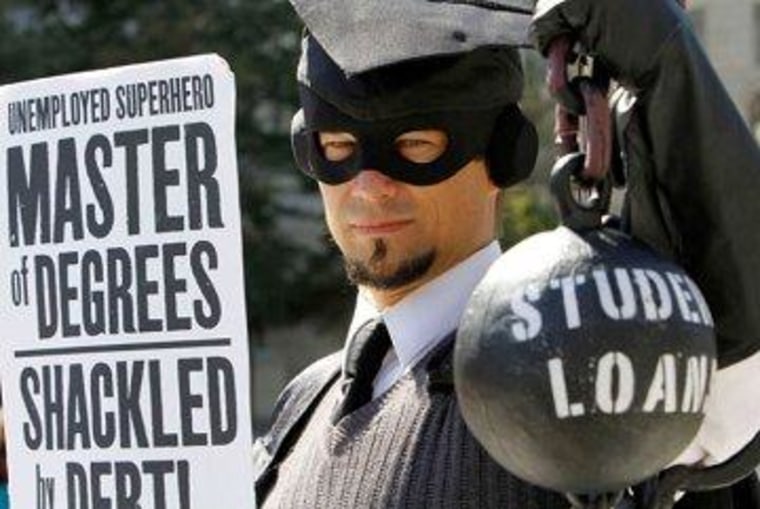It doesn't get enough attention, but I still consider the creation of the Consumer Financial Protection Bureau (CFPB) one of the more important breakthroughs for progressive governance in the Obama era. That its work on our behalf tends to happen far from the spotlight somehow makes it more impressive -- the agency's work isn't showy, it's just effective.
It was the CFPB that recently
announced multi-million dollar fines for four mortgage insurers for "doling out illegal kickbacks to mortgage lenders in exchange for business." It was the CFPB that
cracked down on a lender for allegedly "paying illegal bonuses to employees who steered home buyers toward higher-interest loans." It was the CFPB that
ended 2013 with "a string of enforcement cases ... on lending discrimination, mortgage servicing, online lending and credit card products."
Federal regulators are investigating reports that lenders are pressuring thousands of college graduates to immediately repay their full student loan debt when a relative who co-signed the loans dies or files for bankruptcy. The Consumer Financial Protection Bureau (CFPB) said Tuesday it is probing the phenomenon, which can damage the credit reports of borrowers who are otherwise in good standing.
Rohit Chopra, the student loan ombudsman at the CFPB, told The Hill, "Private student loans can sometimes take many years to pay off, and these parents or grandparents may be unaware that their own financial distress or death can lead to a sudden default and demand for payment."
Here's the situation in a nutshell: young people lacking in collateral often receive student loans with a co-signer, usually a parent. It works like any other debt -- the lender figures that if the student struggles to keep up on the payments, the co-signer will be obligated to pick up the slack.
But if the co-signer dies unexpectedly, the lender panics. "We're sorry for your loss," the bank says, "but if you could give us all our money immediately, that'd be great."
It doesn't matter if the young person hasn't missed a payment and it doesn't matter if he/she can't afford to pay the balance.
The CFPB reported it has received more than 2,300 complaints about private student loans over the last six months, many of which concern lenders' debt collection practices. One theme throughout the complaints was that, in some cases, lenders are collecting on student loans when a co-signor dies but the primary borrower is still alive and paying on time. This has the potential to wreck college graduates' credit reports, Chopra said. "Borrowers need to be aware that these defaults can seriously impair their credit profile, making it harder to buy a home, start a small business, and otherwise contribute to the economy," he said.
So, the CFPB is intervening on consumers' behalf. The young people are feeling pushed around by lenders, so now they'll have a government agency doing what they can't: push back.
Remember, congressional Republicans fought tooth and nail to destroy the CFPB, even using
unprecedented, legally dubious schemes to prevent the agency from even getting to work.
Fortunately for consumers, Republicans failed.
And with all of this in mind, a scheduling note: Sen. Elizabeth Warren (D-Mass.), who helped create the CFPB in the first place, will be in-studio on "The Rachel Maddow Show" tonight. It's going to be a good one.
